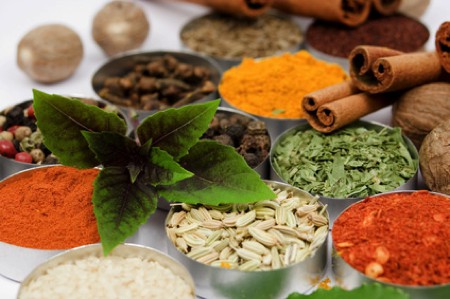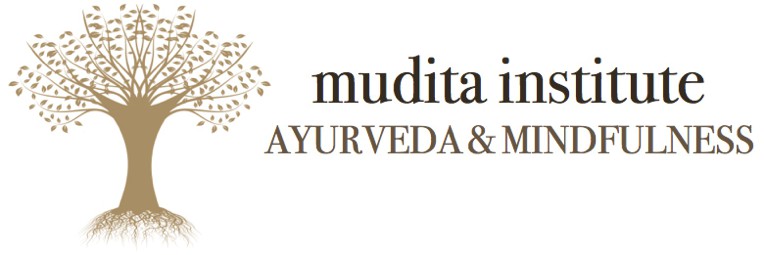By Kester Marshall
Many people have been asking me lately “is fasting a good thing to do?”...
The short answer is that yes, in the right circumstances, it is a good thing.
We live in a society that is prone to over consumption and when it comes to many of us, physical under activity. These are both major contributors to poor digestion. In Ayurveda poor digestion is described as a weak digestive fire (agni). This causes accumulation of undigested food waste in the gut and subsequent formation of unwanted toxins (ama). Some of the symptoms of ama are heaviness, morning sluggishness, poor appetite, bloating or heaviness after meals, sticky bowel movements and bad breath. These accumulated toxins then further compromise digestion, move into the channels and act as a catalyst for the development of disease.
Other dietary habits that contribute to poor digestion and ama formation are; regularly eating heavy foods such as meat, eggs, cheese or cold milk; eating excessive amounts of raw food; eating before the previous meal is properly digested; eating too late at night; incompatible food combinations; and eating when stressed or on the run.
There are also periods of natural cycles when our agni is adversely affected, such as the change of seasons, so at these times it is prudent to give the digestion a rest so that ama does not accumulate.
According to Ayurveda, therapy can be divided into two basic approaches, building, strengthening or ‘stoutening’ the body and reducing or lightening the body. The latter is obviously where fasting comes in and although many of us live in ways that make us perfect candidates for an occasional fast, it is always best done in a way that doesn’t cause undue agitation or disruption to the body and mind.
Rather than approaching fasting with a forceful or aggressive mind set, the aim is to gently provide an opportunity for our agni to build and become stronger so that the body can perform a ‘clean-out’ at it’s own speed, naturally letting go of what it is prepared to without being forced.
More dramatic methods such as the use of purgatives, ‘cleansing programs’ or colonic irrigation are the realm of serious purification therapy (shodana) and should only be done under the guidance of a qualified practitioner due to their intense nature and the potential long term ramifications if carried out incorrectly.
Despite the ‘buzz’ that it is possible to achieve through fasting, Ayurveda recommends against doing it in excess as this also causes disturbance of agni and can lead to depletion of the tissues and Ojas. This causes weakened immunity, a lack of sensory co-ordination, patience, tolerance or endurance and a greater propensity for anxiety, stress and an inability to cope.
Carried out correctly however, fasting is highly beneficial. It helps the body to burn and eliminate ama, leading to increased energy levels, a lighter feeling in our body, greater emotional buoyancy and a brighter, sharper mental disposition.
As well as benefitting the physical body, fasting is carried out in many traditions to help us cultivate greater awareness of our cravings and habits and to strengthen mental agni, which improves our ability to digest and integrate our experiences.
In order to accentuate this, during the time you are fasting it is also good to go on a ‘media fast’, avoiding TV, radio, newspapers and violent or disturbing movies in order to increase the cleansing and rejuvenative effects on the mind.
The type of fast we choose very much depends on the individual (their strength, the climate they are in, their age and their constitution) and definitely should not be undertaken by those who are frail or debilitated. For example, a slight, ethereal person with a vata constitution who suffers dryness and constipation might only need a three day fast eating kicharee and warm soups, while a strong, robust kapha character may be able to handle a longer fast of 7 days on only brothy soups and juices. A person of pitta constitution may be somewhere in between.
A good general fast that is not excessively demanding and suitable for most people should be no longer than three days in length. Food should consist of light soup made from split mung dal and kicharee with no vegetables added. Drink only warm water or herbal teas during the day, take the time to relax and avoid stress or overwork of any kind. If you feel you need something extra to aid the process of elimination then take 1/4 tsp of Triphala in hot water before bed each evening.... Remember to work back into your normal diet over several days, introducing vegetables with your kicharee first, then maybe rice and vegetables with some soupy dal and then other foods as your body tells you it is ready.
In closing, it is important to mention that rather than approaching fasting as a one off ‘super-cleanse’ or a quick fix for some problem that we are having difficulty with, it should be seen as an opportunity to get a better sense of our selves and what our body and mind require on a daily basis so that we can live happier, healthier and more sustainable lives.
If you are in any doubt about your health please be sure to consult an Ayurvedic Practitioner or your local health physician. See our Clinic page for more information.
**For more information about Fasting & Detoxing, see our online course**

